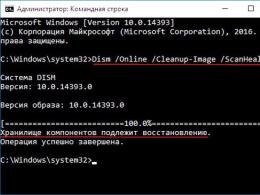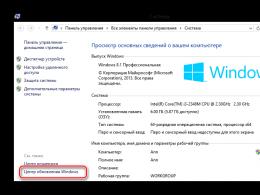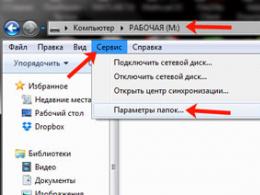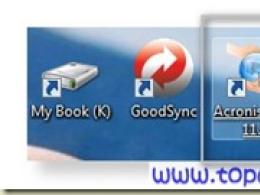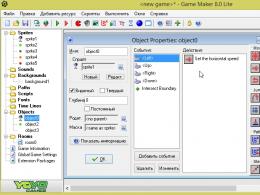Federal Law of May 1. You can refuse the Mir electronic card! Do public sector institutions need to issue MIR salary cards for employees?
Clause 1 of Article 16.1 of the Law Russian Federation dated February 7, 1992 No. 2300-I “On the protection of consumer rights” (as amended Federal Law dated January 9, 1996 No. 2-FZ) (Gazette of the Congress of People's Deputies of the Russian Federation and the Supreme Council of the Russian Federation, 1992, No. 15, Art. 766; Collection of Legislation of the Russian Federation, 1996, No. 3, Art. 140; 2014, No. 19 , Art. 2317; 2016, No. 27, Art. 4198) shall be stated as follows:
"1. The seller (executor) is obliged to ensure the possibility of paying for goods (work, services) through the use of national payment instruments, as well as cash payments at the consumer’s choice.
The obligation to ensure the possibility of paying for goods (work, services) using national payment instruments within the national payment card system applies to the seller (executor) whose revenue from the sale of goods (work, services) for the previous calendar year exceeds forty million rubles.
If the place of payment for goods (works, services) is located in a place where access services to mobile radiotelephone communications and (or) means of collective access to the information and telecommunications network “Internet” are not provided, the seller (performer) is relieved of the obligation to provide the opportunity in this place payment for goods (works, services) using national payment instruments.
The seller is released from the obligation to ensure the possibility of paying for goods using national payment instruments in a retail facility, the proceeds from the sale of goods in which amount to less than five million rubles for the previous calendar year.”
Introduce into the Federal Law of June 27, 2011 No. 161-FZ “On the National Payment System” (Collected Legislation of the Russian Federation, 2011, No. 27, Art. 3872; 2013, No. 30, Art. 4084; No. 52, Art. 6968; 2014, No. 19, Art. 2315, 2317; No. 43, Art. 5803; 2016, No. 27, Art. 4223) the following changes:
1) paragraph 11 of Article 3 after the words “Russian Federation,” shall be supplemented with the words “unless otherwise provided by this Federal Law, and”;
2) Part 8.1 of Article 20 shall be stated as follows:
"8.1. When included in the rules payment system changes providing for the introduction of new tariffs or an increase in the size of tariffs, the payment system operator is obliged to notify the Bank of Russia about this no less than 30 calendar days before the date of entry into force of changes to the rules of the payment system and provide justification for these changes.”;
3) in article 22:
a) paragraph 1 of part 1 should be stated as follows:
“1) making transfers within the payment system for three consecutive calendar months Money in the amount of no less than the share of the amount of funds transferred by credit institutions established by the Bank of Russia;”;
b) part 2 should be stated as follows:
"2. A payment system is socially significant if it meets at least one of the following criteria:
1). established by the Bank of Russia;
2).
3).
4) during a calendar year, within the framework of the payment system, transfers of funds to clients’ bank accounts - individuals(except for money transfers using payment cards) in the amount of no less than the share established by the Bank of Russia of the amount of money transfers to the bank accounts of individual clients carried out within the framework of payment systems.”;
4) in article 30.1:
a) in part 2 the words “and other electronic means payment provided" shall be replaced with the words "and other electronic means of payment on which a trademark (service mark) belonging to the NSPK operator is placed and which are provided";
"2.1. If a trademark (service mark) is placed on a national payment instrument, operator-owned foreign payment system, operations using the national payment instrument on the territory of the Russian Federation are carried out in accordance with the rules of the NSPK.”;
5) in article 30.2:
a) part 3 should be stated as follows:
"3. The share of participation of the Bank of Russia in the authorized capital of the NSPK operator cannot be lower than 50 percent plus one voting share.”;
b) in part 4 the words “more than 10 percent” are replaced with the words “more than 5 percent”;
6) in article 30.5:
a) Part 1 is supplemented with paragraphs 3 - 6 as follows:
“3) Vnesheconombank as an individual participant of NSPK;
4) a foreign bank (foreign credit organization) as an individual participant of the NSPK;
5) a foreign central (national) bank as an individual participant of the NSPK;
6) an international financial organization as an individual participant of the NSPK.”;
b) part 3 should be stated as follows:
"3. Credit institutions no later than July 1, 2017 are required to ensure the acceptance of national payment instruments in all of their technical devices, intended for making settlements using payment cards, including ATMs, as well as in technical devices intended for making settlements using payment cards, all organizations, individual entrepreneurs with whom such credit institutions have concluded agreements on making settlements on transactions using payment cards cards or national payment instruments.”;
c) part 5 should be stated as follows:
"5. Credit organizations when carrying out transactions with payments provided for in parts 5.5 and 5.6 of this article at the expense of budget funds budget system The Russian Federation (hereinafter referred to as payments) are obliged (except for the cases provided for in part 5.4 of this article) within the time limits established by part 5.3 of this article:
1) provide individual clients with only national payment instruments if the bank account allows for transactions using payment cards. A credit institution providing national payment instruments determines at least one type of payment card (product type depending on the services provided to the client - an individual), which is a national payment instrument and for the provision, annual servicing of which, for the issuance of cash for which at the specified credit institution, as well as at its ATMs, no fees are charged from clients - individuals receiving payments provided for in paragraph 4 of part 5.5 of this article;
2) credit payments to the bank accounts of clients - individuals, transactions for which are carried out using national payment instruments.";
d) add part 5.1 with the following content:
"5.1. Credit institutions are required to carry out transactions on the territory of the Russian Federation using payment cards on bank accounts into which payments received by individual clients are credited only using national payment instruments. The provisions of this part do not limit the right of the account owner to carry out transactions on such a bank account without using a payment card.”;
e) add part 5.2 with the following content:
"5.2. The provisions of parts 5 and 5.1 of this article are also considered to be observed if a trademark (service mark) belonging to the operator of a foreign payment system is placed on a national payment instrument.”;
f) add part 5.3 with the following content:
"5.3. The obligations of credit institutions established by parts 5 and 5.1 of this article arise:
1) in relation to clients - individuals when they apply for opening a bank account in order to receive payments to newly opened bank accounts that provide for transactions using payment cards - from July 1, 2017;
2) in relation to clients - individuals (except for those specified in paragraph 1 of this part) receiving payments specified in paragraphs 4 and 5 of part 5.5 of this article to bank accounts that provide for transactions using payment cards that are not national payment instruments , - upon expiration of the specified payment cards, but no later than July 1, 2020;
3) in relation to clients - individuals (except for those specified in paragraph 1 of this part) receiving payments provided for in paragraphs 1 - 3 of part 5.5 of this article - from July 1, 2018.”;
g) add part 5.4 with the following content:
"5.4. The provisions of parts 5 - 5.3 of this article do not apply to cases of receipt by individual clients of tax deductions for personal income tax, receipt by individual clients of payments to bank accounts that do not provide for transactions with them using payment cards, receipt by individual clients persons making payments through cash payments (including through organizations postal service), receipt by individual clients of lump sum payments determined in accordance with regulatory legal acts or payments made at intervals less than once a year, and also do not apply to individuals with permanent residence outside the Russian Federation, employees of diplomatic missions, consular offices of the Russian Federation and permanent missions of the Russian Federation to international (interstate, intergovernmental) organizations.”;
h) add part 5.5 with the following content:
"5.5. The obligations of credit institutions established by parts 5 and 5.1 of this article arise when carrying out transactions with the following payments:
1) salary, remuneration, allowances for civil servants;
2) remuneration of employees (personnel) of state and municipal bodies, institutions, state extra-budgetary funds;
3) government scholarships;
4) pensions and other social payments, the implementation of which, in accordance with the legislation of the Russian Federation, is within the competence of Pension Fund Russian Federation;
5) monthly lifelong maintenance for judges.”;
i) add part 5.6 with the following content:
"5.6. The Government of the Russian Federation, in agreement with the Bank of Russia, has the right to establish a list of other payments for the purposes of applying parts 5 and this article.”;
j) add part 5.7 with the following content:
"5.7. The amount of commission associated with the receipt, acceptance of a national payment instrument and its use should not exceed the amount of commission charged by a credit institution for payment cards of payment systems of a similar type, type of product.”;
7) in article 30.6:
a) part 2 should be stated as follows:
"2. Settlement services for money transfers using national payment instruments are provided by the Bank of Russia when making such transfers between NSPK participants specified in paragraphs 1 - 3 of part 1 of Article 30.5 of this Federal Law, or in cases where these NSPK participants are one party to the funds transfer , and the other party to the transfer of funds are the NSPK participants specified in paragraphs 4 - 6 of part 1 of Article 30.5 of this Federal Law. In these cases, the provision of settlement services by the Bank of Russia can be carried out with the participation of a central payment clearing counterparty without opening bank accounts of NSPK participants specified in paragraphs 4 - 6 of part 1 of Article 30.5 of this Federal Law with the Bank of Russia.”;
b) add part 2.1 with the following content:
"2.1. Settlement services for money transfers using national payment instruments not specified in Part 2 of this article may in other cases be provided by a settlement center, which may be:
1) credit institution;
2) Vnesheconombank;
3) foreign bank (foreign credit organization);
4) foreign central (national) bank;
5) international financial organization.”;
c) add part 2.2 with the following content:
"2.2. If the NSPK operator engages a settlement center in accordance with Part 2.1 of this article, the provisions of Part 1 of Article 19 of this Federal Law do not apply.”
1. This Federal Law comes into force on the date of its official publication, with the exception of this Federal Law.
| President of Russian Federation | V. Putin |
Moscow Kremlin
Document overview
Amendments have been made to the laws on consumer protection and the national payment system.
Amendments to the Law on the National Payment System concern the use of Mir cards. Thus, the deadline for pensioners to switch to cards is July 1, 2020. For other public sector workers, military personnel, civil servants, etc. - July 1, 2018. The general transition begins on July 1, 2017. Issuance and servicing of cards for pensioners will be free.
There is no need to open Mir cards to receive payments for tax deductions (personal income tax) and for one-time payments.
It is stipulated that the minimum share of the Bank of Russia in the authorized capital of NSPK is 50% plus 1 share. The maximum concentration of shares of other participants cannot exceed 5%.
In the Law on the Protection of Consumer Rights, the obligation to ensure the possibility of paying for goods (work, services) using national payment instruments within the framework of the NSPK applies to the seller (performer) whose proceeds from the sale of goods (work, services) for the previous calendar year exceed 40 million rubles .
The subject may be released from this obligation if services are not provided in the relevant territory mobile communications or no Internet access. Another exception is that revenue from the sale of goods is less than 5 million rubles. for the previous calendar year.
The federal law comes into force on the day of its official publication, with the exception of certain provisions for which a different period is provided.
RUSSIAN FEDERATION
THE FEDERAL LAW
ABOUT MAKING CHANGES
IN ARTICLE 16.1 OF THE LAW OF THE RUSSIAN FEDERATION "ON PROTECTION OF RIGHTS
CONSUMERS" AND THE FEDERAL LAW "ON NATIONAL
PAYMENT SYSTEM"
Clause 1 of Article 16.1 of the Law of the Russian Federation of February 7, 1992 N 2300-1 “On the Protection of Consumer Rights” (as amended by the Federal Law of January 9, 1996 N 2-FZ) (Gazette of the Congress of People's Deputies of the Russian Federation and the Supreme Council of the Russian Federation, 1992, No. 15, Article 766; Collection of Legislation of the Russian Federation, 1996, No. 3, Article 140; 2014, No. 19, Article 2317; 2016, No. 27, Article 4198) shall be stated as follows:
"1. The seller (executor) is obliged to ensure the possibility of paying for goods (work, services) through the use of national payment instruments, as well as cash payments at the choice of the consumer.
The obligation to ensure the possibility of paying for goods (work, services) using national payment instruments within the national payment card system applies to the seller (executor) whose revenue from the sale of goods (work, services) for the previous calendar year exceeds forty million rubles.
If the place of payment for goods (works, services) is located in a place where access services to mobile radiotelephone communications and (or) means of collective access to the Internet information and telecommunications network are not provided, the seller (performer) is relieved of the obligation to provide the opportunity in this place payment for goods (works, services) using national payment instruments.
The seller is released from the obligation to ensure the possibility of paying for goods using national payment instruments in a retail facility, the proceeds from the sale of goods in which amount to less than five million rubles for the previous calendar year."
Introduce into the Federal Law of June 27, 2011 N 161-FZ “On the National Payment System” (Collected Legislation of the Russian Federation, 2011, N 27, Art. 3872; 2013, N 30, Art. 4084; N 52, Art. 6968; 2014, No. 19, Articles 2315, 2317; No. 43, Article 5803; 2016, No. 27, Article 4223) the following changes:
1) paragraph 11 of Article 3 after the words “Russian Federation,” add the words “unless otherwise provided by this Federal Law, and”;
2) Part 8.1 of Article 20 shall be stated as follows:
"8.1. When changes are made to the rules of the payment system that provide for the introduction of new tariffs or an increase in the size of tariffs, the payment system operator is obliged to notify the Bank of Russia about this no less than 30 calendar days before the date of entry into force of the changes to the rules of the payment system and provide justification for these changes.";
3) in article 22:
a) paragraph 1 of part 1 should be stated as follows:
“1) making funds transfers within the payment system within the framework of the payment system for three consecutive calendar months in an amount not less than the percentage established by the Bank of Russia of the amount of money transfers made by credit institutions;”;
b) part 2 should be stated as follows:
"2. A payment system is socially significant if it meets at least one of the following criteria:
1). established by the Bank of Russia;
2).
3).
4) during a calendar year, within the framework of the payment system, transfers of funds to the bank accounts of individual clients (except for transfers of funds using payment cards) in the amount of no less than the percentage established by the Bank of Russia from the amount of money transfers to the bank accounts of clients - individuals carried out within the framework of payment systems.";
4) in article 30.1:
a) in part 2, the words “and other electronic means of payment provided” are replaced with the words “and other electronic means of payment on which a trademark (service mark) belonging to the NSPK operator is placed and which are provided”;
"2.1. If a trademark (service mark) belonging to the operator of a foreign payment system is placed on a national payment instrument, operations using the national payment instrument on the territory of the Russian Federation are carried out in accordance with the rules of the National Payment System.";
5) in article 30.2:
a) part 3 should be stated as follows:
"3. The share of participation of the Bank of Russia in the authorized capital of the NSPK operator cannot be lower than 50 percent plus one voting share.";
b) in part 4 the words “more than 10 percent” should be replaced with the words “more than 5 percent”;
6) in article 30.5:
a) Part 1 is supplemented with paragraphs 3 - 6 as follows:
"3) Vnesheconombank as an individual participant of NSPK;
4) a foreign bank (foreign credit organization) as an individual participant of the NSPK;
5) a foreign central (national) bank as an individual participant of the NSPK;
6) an international financial organization as an individual participant of the NSPK.";
b) part 3 should be stated as follows:
"3. Credit institutions, no later than July 1, 2017, are obliged to ensure the acceptance of national payment instruments in all their technical devices intended for making payments using payment cards, including ATMs, as well as in technical devices intended for making payments using payment cards, all organizations, individual entrepreneurs with whom such credit institutions have concluded agreements on settlements for transactions using payment cards or national payment instruments.";
c) part 5 should be stated as follows:
"5. Credit organizations, when carrying out transactions with payments provided for in parts 5.5 and 5.6 of this article from the budgets of the budget system of the Russian Federation (hereinafter referred to as payments), are obliged (except for the cases provided for in part 5.4 of this article) within the time limits established by part 5.3 of this article :
1) provide individual clients with only national payment instruments if the bank account allows for transactions using payment cards. A credit institution providing national payment instruments determines at least one type of payment card (product type depending on the services provided to the client - an individual), which is a national payment instrument and for the provision, annual servicing of which, for the issuance of cash for which at the specified credit institution, as well as at its ATMs, no fees are charged from clients - individuals receiving payments provided for in paragraph 4 of part 5.5 of this article;
2) credit payments to the bank accounts of clients - individuals, transactions for which are carried out using national payment instruments.";
d) add part 5.1 with the following content:
"5.1. Credit organizations are obliged to carry out transactions on the territory of the Russian Federation using payment cards on bank accounts to which payments received by individual clients are credited, only using national payment instruments. The provisions of this part do not limit the right of the account owner to carry out transactions on such bank account without using a payment card.";
e) add part 5.2 with the following content:
"5.2. The provisions of parts 5 and 5.1 of this article are also considered to be complied with if a trademark (service mark) belonging to the operator of a foreign payment system is placed on a national payment instrument.";
f) add part 5.3 with the following content:
"5.3. The obligations of credit institutions established by parts 5 and 5.1 of this article shall occur:
1) in relation to clients - individuals when they apply for opening a bank account in order to receive payments to newly opened bank accounts that provide for transactions using payment cards - from July 1, 2017;
2) in relation to clients - individuals (except for those specified in paragraph 1 of this part) receiving payments specified in paragraphs 4 and 5 of part 5.5 of this article to bank accounts that provide for transactions using payment cards that are not national payment instruments , - upon expiration of the specified payment cards, but no later than July 1, 2020;
3) in relation to clients - individuals (except for those specified in paragraph 1 of this part) receiving payments provided for in paragraphs 1 - 3 of part 5.5 of this article - from July 1, 2018.";
g) add part 5.4 with the following content:
"5.4. The provisions of parts 5 - 5.3 of this article do not apply to cases of clients - individuals receiving tax deductions for personal income tax, clients - individuals receiving payments to bank accounts that do not provide for transactions using payment cards, receiving by clients - individuals - payments through cash payments (including through postal organizations), receipt by clients - individuals of lump sum payments determined in accordance with regulatory legal acts or payments made at intervals less than once a year, and also do not apply to individuals with permanent residence outside the Russian Federation, employees of diplomatic missions, consular offices of the Russian Federation and permanent missions of the Russian Federation to international (interstate, intergovernmental) organizations.";
h) add part 5.5 with the following content:
"5.5. The obligations of credit institutions established by parts 5 and 5.1 of this article arise when carrying out transactions with the following payments:
1) salary, remuneration, allowances for civil servants;
2) remuneration of employees (personnel) of state and municipal bodies, institutions, state extra-budgetary funds;
3) government scholarships;
4) pensions and other social benefits, the implementation of which, in accordance with the legislation of the Russian Federation, is within the competence of the Pension Fund of the Russian Federation;
5) monthly lifelong maintenance for judges.";
i) add part 5.6 with the following content:
"5.6. The Government of the Russian Federation, in agreement with the Bank of Russia, has the right to establish a list of other payments for the purposes of applying parts 5 and 5.1 of this article.";
j) add part 5.7 with the following content:
"5.7. The amount of commission associated with the receipt, acceptance of a national payment instrument and its use should not exceed the amount of commission charged by a credit institution for payment cards of payment systems of a similar type, type of product.";
7) in article 30.6:
a) part 2 should be stated as follows:
"2. Settlement services for transfers of funds using national payment instruments are provided by the Bank of Russia when making such transfers between NSPK participants specified in paragraphs 1 - 3 of part 1 of Article 30.5 of this Federal Law, or in cases where these NSPK participants are the same party transfer of funds, and the other party to the transfer of funds are the NSPK participants specified in paragraphs 4 - 6 of part 1 of Article 30.5 of this Federal Law. In these cases, the provision of settlement services by the Bank of Russia can be carried out with the participation of a central payment clearing counterparty without opening banking accounts in the Bank of Russia accounts of NSPK participants specified in clauses 4 - 6 of part 1 of article 30.5 of this Federal Law.";
b) add part 2.1 with the following content:
"2.1. Settlement services for money transfers using national payment instruments not specified in Part 2 of this article, in other cases, may be provided by a settlement center, which may be:
1) credit institution;
2) Vnesheconombank;
3) foreign bank (foreign credit organization);
4) foreign central (national) bank;
5) international financial organization.";
c) add part 2.2 with the following content:
"2.2. If the NSPK operator engages a settlement center in accordance with Part 2.1 of this article, the provisions of Part 1 of Article 19 of this Federal Law do not apply."
1. This Federal Law comes into force on the date of its official publication, with the exception of Article 1 of this Federal Law.
The president
Russian Federation
V. PUTIN
"On amendments to Article 16.1 of the Law of the Russian Federation "On the Protection of Consumer Rights" and the Federal Law "On the National Payment System"
A comment
Let us remind you that the Russian payment card "MIR" was created within the framework of the national payment system as an alternative to international cards VISA and MasterCard.
The first MIR cards were released at the end of 2015. On this moment a significant number of banks in Russia issue these cards. See information on the website of the national payment system.
- if the payment is made in an area where there is no Internet connection and mobile radiotelephone access services are not provided;
- if the revenue from the sale of goods through a retail outlet for the previous calendar year was less than 5 million rubles.
It follows from this rule: if an organization has several retail facilities, then revenue from sales of products must be determined for each of them. Exemption from the obligation to install a terminal will apply to those facilities in which the mentioned revenue limit is not exceeded.
Let us recall that a retail facility is a building, structure, structure (parts thereof) equipped with equipment for displaying, demonstrating goods, serving customers and making payments when selling goods (Clause 4, Article 2 of Federal Law No. 381-FZ of December 28, 2009) .
It is not entirely clear how to apply the new provisions in practice to sellers (performers) who not only sell goods, but also perform work and (or) provide services by accepting orders in a retail facility. Eg:
- The organization carries out its main activities in the service sector. At the same time, it sells related products through the retail facility. Reception of orders and sales of products take place in one facility. It is possible that at the end of the calendar year, revenue from all types of activities will be more than 40 million rubles, and revenue directly from the sale of goods will be less than 5 million rubles. On the one hand, the organization is obliged to ensure that such a retail facility can accept MIR cards from customers, since revenue from business activities exceeded 40 million rubles. On the other hand, the organization falls under the exception since the proceeds from the sale of goods amounted to less than 5 million rubles;
- The organization is a trading network. At the same time, in the process of selling products, it accepts orders from buyers for a number of services (in particular, packaging, delivery of goods sold, etc.). Let’s assume that the year’s revenue from the sale of goods through individual retail outlets turned out to be less than 5 million rubles. At the same time, in general, trading network(including revenues for services rendered) the amount of revenue is more than 40 million rubles. In such a situation, is it necessary to place terminals for accepting cards in all retail outlets?
We believe that in such cases it is advisable to contact Rospotrebnadzor for clarification.
At the moment, sellers (performers) are also obliged to provide buyers with the opportunity to pay using the MIR card. However, this applies to those entities whose income from business activities for the previous calendar year exceeds 120 million rubles (clause 1 of Article 16.1 of the Law of the Russian Federation dated 02/07/1992 No. 2300-1 “On the Protection of Consumer Rights”, Decree of the Government of the Russian Federation dated 04/04. 2016 No. 265).
Please note that the penalties for non-compliance with this requirement have not changed. In accordance with Art. 2.4, part 4 art. 14.8 Code of Administrative Offenses of the Russian Federation:
- an individual entrepreneur and an official of an organization may be fined from 15,000 rubles to 30,000 rubles;
- organization - in the amount of 30,000 rubles to 50,000 rubles.
Sanctions are not applied for the absence of a terminal for servicing international payment cards in a retail facility (see letter from Rospotrebnadzor dated July 22, 2015 “On clarification of the legislation”).
Do public sector institutions need to issue MIR salary cards for employees?
Soon, credit institutions will be required to credit payments to individuals from budget funds only to bank accounts for which transactions are carried out using the MIR card. The transition to this payment procedure is gradual. It starts on July 1, 2017 and is due to end by July 1, 2020.
However, not all funds will be credited to the MIR card. Their list is limited. Yes, according to the amendments new order crediting of funds applies to (clause "z" clause 6 of article 2 of Law No. 88-FZ):
- remuneration for civil servants;
- wages of employees of state and municipal bodies, institutions, extra-budgetary funds;
- government scholarships;
- monthly lifelong maintenance for judges.
Please note that Law No. 88-FZ contains a clause that the Government of the Russian Federation, in agreement with the Central Bank of the Russian Federation, may subsequently expand the list of such payments (clause “and” clause 6 of Article 2 of Law No. 88-FZ).
The table shows the types of payments from the budget and the deadlines before which an account must be opened in the name of an individual in a bank (other credit institution) serviced by a MIR card in order for the bank to credit the funds intended for the individual to this account (clause “c” , "e", "z" clause 6, article 2 of Law No. 88-FZ).
| Budget resources | Conditions for crediting funds to the account | Deadline for switching to the MIR card |
|---|---|---|
| remuneration of civil servants; State scholarships |
01.07.2018 | |
| remuneration of civil servants; Salaries of employees of state and municipal bodies, institutions, extra-budgetary funds; State scholarships |
account opening date | |
| pensions and other social benefits; | The bank account was opened until July 1, 2017 and is serviced by other payment cards | upon expiration of the payment card, but no later than 01/01/2020 |
| pensions and other social benefits; Monthly life allowance for judges |
A bank account is opened for the first time on 07/01/2017 | account opening date |
The following is important for employers in the public sector.
If an employer currently transfers wages to employees (civil servants) to accounts serviced by VISA and MasterCard payment cards, he can adhere to this payment procedure until July 1, 2018. From this date, employers must transfer remuneration or wages only to accounts to which the MIR card is linked. In particular, for this purpose, you can enter into an agreement with the bank that issues such cards on the centralized transfer of wages within the framework of a salary project.
If remuneration or wages (from the budget) will be paid to employees (civil servants) who first applied for opening a bank account in order to receive the specified payments from July 1, 2017 (for example, from this date a new employee was hired into the organization who does not have an open bank account), the employer should ensure that the salary accounts of such employees are serviced by a credit institution using a MIR card.
Please note that an individual will not need a bank account to which the MIR card is linked to receive the following payments from the budget (clause “g”, clause 6, article 2 of Law No. 88-FZ):
- amounts of money in connection with the provision of deductions for personal income tax;
- funds credited to accounts that do not provide for transactions using payment cards;
- lump sum payments or payments at intervals less than once a year;
- payments in favor of individuals with permanent residence outside the Russian Federation.
This is done so that state employees and pensioners can pay for goods and services with a MIR card. But it is clear that these terminals will also accept other cards (MasterCard, Visa).
In fact, from October 1, mandatory card payments will be introduced throughout the country. Exceptions are made for companies and individual entrepreneurs with revenue up to 40 million per year.
Amendments to Article 16.1 of the Law on Protection of Consumer Rights
“The seller (executor) is obliged to ensure the possibility of paying for goods (work, services) through the use of national payment instruments, as well as cash payments at the consumer’s choice.
The obligation to ensure the possibility of paying for goods (work, services) using national payment instruments within the national payment card system applies to the seller (executor) whose revenue from the sale of goods (work, services) for the previous calendar year exceeds forty million rubles.
If the place of payment for goods (works, services) is located in a place where access services to mobile radiotelephone communications and (or) means of collective access to the Internet information and telecommunications network are not provided, the seller (performer) is relieved of the obligation to provide the opportunity in this place payment for goods (works, services) using national payment instruments.
The seller is released from the obligation to ensure the possibility of paying for goods using national payment instruments in a retail facility, the proceeds from the sale of goods in which amount to less than five million rubles for the previous calendar year.”

